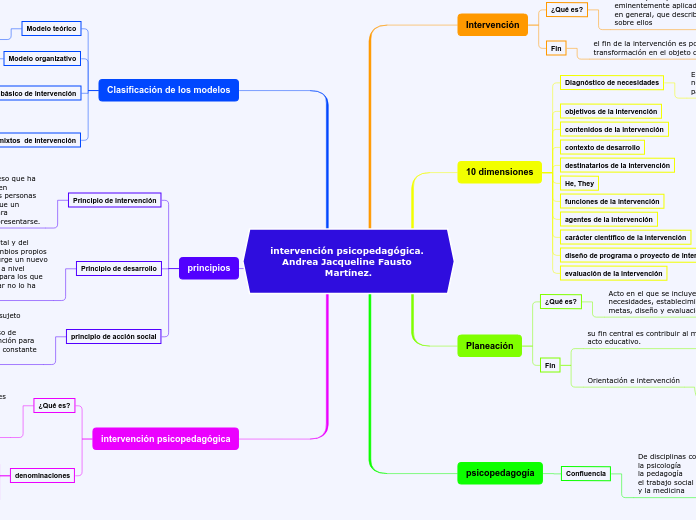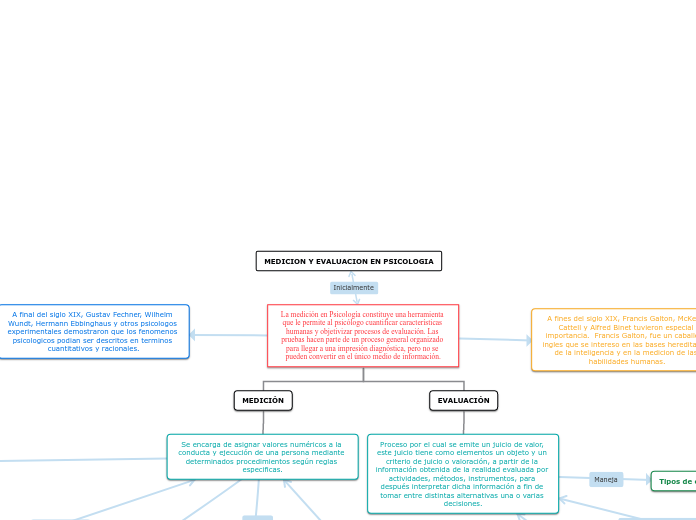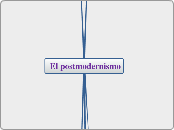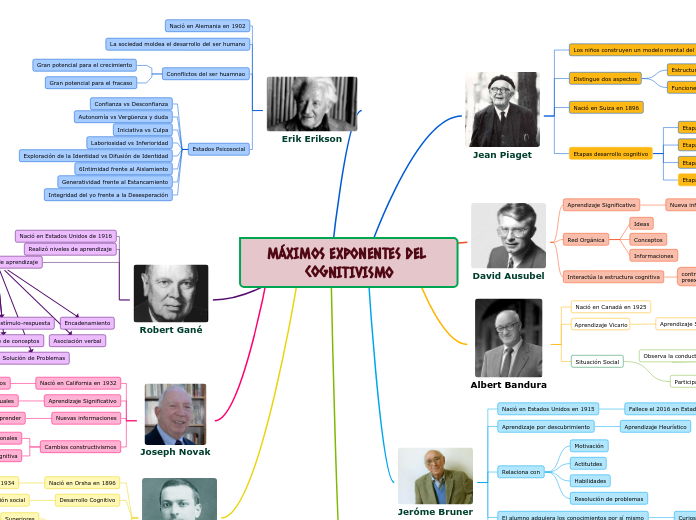intervención psicopedagógica. Andrea Jacqueline Fausto Martínez.
The part of speech is a category to which a word is assigned according to its syntactic functions. In English the main parts of speech are noun, pronoun, adjective, determiner, verb, adverb, preposition, conjunction, and interjection.
intervención psicopedagógica
An article is a word used to modify a noun, which is a person, place, object, or idea. Technically, an article is an adjective, which is any word that modifies a noun.
denominaciones
Indefinite articles are the words 'a' and 'an.' Each of these articles is used to refer to a noun, but the noun being referred to is not a specific person, place, object, or idea. It can be any noun from a group of nouns.
intervención psicológica
Intervención pedagógica
intervención psicoeducativa
It refers directly to a specific noun or groups of nouns.
conjunto de actividades que contribuyen a dar solución a determinados problemas, prevenir la aparición de otros, colaborar con las instituciones para hacer que las labores de enseñanza y educación sean cada vez más dirigidas a las necesidades de los alumnos y la sociedad en general.
principios
A conjunction is a word like 'if' 'but' or 'and' which is used to connect sentences or clauses together.
principio de acción social
definido como la posibilidad de que el sujeto haga un reconocimiento de variables contextuales, en esta manera hacer uso de competencias adquiridas en la intervención para adaptarse y hacer frente a estas en su constante transformación
Principio de desarrollo
Subordinating conjunctions are conjunctions that are used at the beginning of subordinate clauses. Some examples of these conjunctions are: although, after, before, because, how, if, once, since, so that, until, unless, when etc.
durante todas las etapas del ciclo vital y del sujeto, no solo se enfrenta a los cambios propios del desarrollo evolutivo, sino que surge un nuevo contexto de relaciones y exigencias a nivel cognitivo social y comportamental, para los que muchas ocasiones el sistema familiar no lo ha preparado.
Principio de intervención
Coordinating conjunctions always connect phrases, words, and clauses. They are: for, and, nor, but, or, yet, so.
concibe la intervención como un proceso que ha de anticiparse a situaciones que pueden entorpecer el desarrollo integral de las personas con la prevención, se busca impedir que un problema se presente o prepararse para contrarrestar sus efectos en caso de presentarse.
Clasificación de los modelos
An interjection is used to express emotion in a sentence.
Think of other interjections!
Modelos mixtos de intervención
se han combinado para satisfacer las necesidades de un contexto determinado ejemplo de estos serían los modelos comunitarios ecológicos sistémicos y psicopedagógicos
Modelo básico de intervención
su conocimiento es la unidad básica de intervención clínica por programas por consultas o psicopedagógicos
Modelo organizativo
encargados de plantear la manera de organizar la orientación en un contexto determinado
Modelo teórico
se conceptualizan como aportes provenientes de las diversas corrientes de pensamiento
psicopedagogía
A pronoun is a word that can be used in place of a noun, typically after the noun itself has already been stated.
Confluencia
The personal pronouns are I, you, he, she, it, we, they. More often than not (but certainly not always), they replace nouns representing people.
De disciplinas como: la psicología la pedagogía el trabajo social y la medicina
están centradas en procesos relacionados con
Las actividades pensadas y proyectadas hacia el logro de aprendizajes cada vez mejores
Las intervenciones encausadas a apoyar o superar obstáculos
Las dificultades que se encuentra el individuo en el proceso de adquisición de nuevas aprendizajes
La manera cómo aprenden y se desarrollan las personas
Planeación
Superlative adjectives demonstrate a higher level of comparison between entities.
Orientación e intervención
conjunto de conocimientos, metodologías y principios teóricos; que posibilitan la ejecución de acciones preventivas, correctivas o de apoyo desde múltiples modelos áreas y principios dirigiéndose a diversos contextos
su fin central es contribuir al mejoramiento del acto educativo.
Expresses a comparison between two entities or groups of entities in quality or degree.
Acto en el que se incluye el análisis de necesidades, establecimiento de objetivos, metas, diseño y evaluación
10 dimensiones
A noun is defined as a person, place, thing or idea. Proper nouns always begin with a capital letter. Common nouns, which are general words, such as 'cars,' are not capitalized.
evaluación de la intervención
diseño de programa o proyecto de intervención
carácter científico de la intervención
agentes de la intervención
funciones de la intervención
He, They
destinatarios de la intervención
contexto de desarrollo
Compound nouns are words where two nouns have been stuck together to make a new noun. Compound nouns should be written as one word, without a hyphen.
contenidos de la intervención
A noun which refers to a group of things/people.
objetivos de la intervención
Countable nouns are nouns that can be counted, even if the number might be extraordinarily high.
Uncountable nouns are nouns that come in a state or quantity which is impossible to count; liquids are uncountable, as are things which act
like liquids.
Diagnóstico de necesidades
Proper nouns are the names of specific people or places. They should always begin with a capital letter.
En el que se identifican y se priorizan las necesidades encontradas, a través de la participación de los afectados
Intervención
A verb is an action word or 'doing' word that signifies movement in some way.
Fin
A linking verb connects the subject with a word that gives information about the subject, such as a condition or relationship.
el fin de la intervención es poder lograr la transformación en el objeto de estudio
¿Qué es?
A verb with its own meaning: a verb that is not an auxiliary verb.
Cabrera (2004) la define como el enfoque eminentemente aplicado a las ciencias sociales, en general, que describe los fenómenos y actúa sobre ellos









